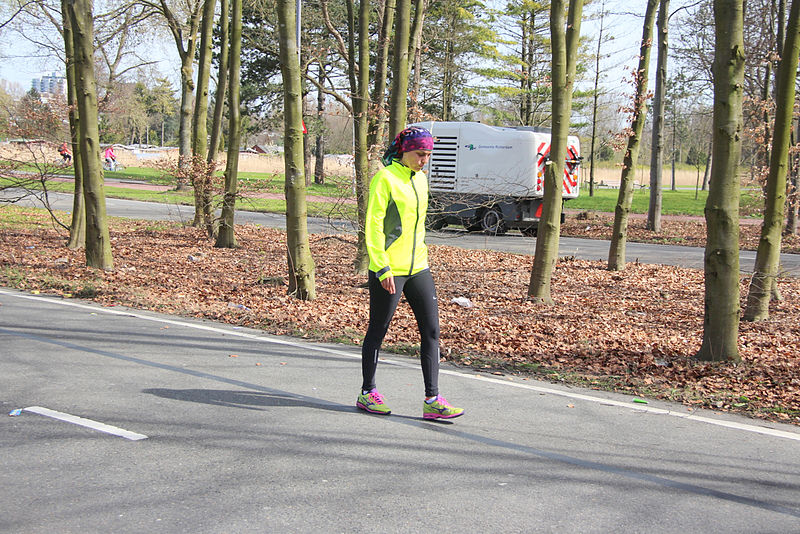「気に入らないなら、ドアを開けて帰ればいい」
[toggle]“And if you don’t like it, there’s the door!”[/toggle]説教壇で同僚牧師の口から出たこの言葉によって、私は牧師の燃え尽き症候群と直面した。その説得力のある説教を伝えた後、彼は講壇の後ろに姿を消し、すすり泣きながらくずおれた。
[toggle]Those words spoken from the pulpit out of the mouth of a ministry colleague introduced me to pastoral burnout. After delivering that doozy of a sermon, he disappeared behind the platform and broke down sobbing.[/toggle]伝道の現場から離れた1カ月、精神的・感情的・肉体的な力を取り戻した1年が、数十年にわたる効果的な伝道へとつながる。
[toggle]A month away from ministry and a year rebuilding spiritual, emotional, and physical strength led to decades of effective ministry.[/toggle]しかし、それは始まる前にほとんど終わっていた。私の友人は燃え尽き症候群に直面していた。私たちのほとんども同じだ。
[toggle]But it was almost over before it began. My friend faced burnout. Most of us will too.[/toggle]
(写真:Sander van der Wel)
私自身の経験(3つの教会での31年間の牧会)でも、燃え尽き症候群の症状を感じた。私の紛れもない兆候は次のとおりだ。
[toggle]I have felt the heat of burnout in my own experience (31 years of pastoral ministry in three churches). Telltale signs for me include:[/toggle]●人を避ける……私は社交的な性格だ。しかし、過度にコミットしたり、疲労を強く感じたりした場合、これはかなり危険な兆候だ。私は予定表を見て、うめき声を上げる。会議をキャンセルする言い訳を考える(または、そもそも会議を入れない)。孤立は、自殺を可能にする。
[toggle]Avoiding people (I am an enthusiastic extrovert). When I have over committed or feel the tug of fatigue, this is a sure indicator of trouble. I look at my calendar and groan. I think of excuses for canceling meetings (or even better, not setting them up in the first place). Isolation can kill.[/toggle]●先延ばし……私の教会では、年間を通して一連のメッセージを説教する。通常、私は、木曜日の朝と金曜日の終日をその準備に充てることで先手を打っている。しかし疲れていると、日曜日が迫ってくるのに、準備を始めるのをぐずぐずと遅らせる。その結果、説教の準備が不十分になり、ストレスが増え、罪悪感が生じる。遅らせることは、豊かな実りを盗む。
[toggle]Procrastinating. In my church context I preach series of messages throughout the year. Usually, I stay ahead of the curve by scheduling study on Thursday mornings and all day Friday. But when I am fatigued, I find myself starting late and pushing the deadlines. That results in poorly prepared sermons, more stress, and guilt. Delay steals fruitfulness.[/toggle]●焦り……人生のわずかな遅れと苛立ち(通常は経験を神聖化する)は、ユーモアではなく怒りをもたらす。ボランティアが働きを台無しにし、スタッフが決定に疑問を投げかけ、家族がガッカリし、私がカッとなる準備が整った。怒りは正しさを生み出さない。
[toggle]Impatience. The little delays and irritations of life (sanctifying experiences usually) result in anger rather than humor. A volunteer blows an assignment, a staff member questions a decision, a family member disappoints and I am ready to blow. Anger does not produce righteousness.[/toggle]●誘惑……サタンは私をよく知っている(私は長年にわたって彼にたくさんの攻撃材料を与えてきた)。そして、私が苦々しい思いや恨みに苦しむたびに、誘惑を高めるための不思議なコツを持っているようだ。プライベートの失敗は伝道活動を破滅させる。
[toggle]Temptation. Satan knows me well (I have given him plenty of ammunition over the years) and he seems to have an uncanny knack for raising temptation whenever I struggle with bitterness or resentment. Private failure destroys effective ministry.[/toggle]燃え尽き症候群は、伝道や学び、または慈善活動によって人に奉仕する私たちに影響を与える。私たちは自分の仕事が大好きだ。奉仕するのも大好きだ。神からの召しに応えている。私たちは訓練を受けて、経験を積んでおり、多くの場合、十分な手腕がある。
[toggle]Burnout impacts those of us who serve others in ministry, academics, or charitable work. We love what we do. We love those we serve. We answer to a high calling. We are trained, experienced, and often well resourced. [/toggle]それでは、なぜ燃え尽き症候群との戦いに負けるのか。
[toggle]So, why do we lose battles with burnout? [/toggle]燃え尽き症候群は新しいものではない。使徒パウロは、「わたしたちは耐えられないほどひどく圧迫されて、生きる望みさえ失ってしまいました」と書いている(2コリント1:8)。彼は続けて、「日々わたしに迫るやっかい事、あらゆる教会についての心配事があります」と言う(同11:28)。アウグスティヌスは絶望と格闘し、それを罪と呼んだ。ルターがうつ病だったことはよく知られている。そしてチャールズ・スポルジョンは、「牧師の失神の発作」を知っていると書いた。
[toggle]Burnout is not new. The Apostle Paul wrote of being “so utterly burdened beyond our strength that we despaired of life itself.” He went on to complain of the “daily pressure on me of my anxiety for the churches” (2 Cor. 1:8, 11:28). Augustine wrestled with despair, calling it sin. Luther was well known for his melancholy. And Charles Spurgeon wrote knowingly of the “minister’s fainting fits.”[/toggle]私たちの時代、著名な牧師の自殺は、奉仕する人たちには感情的なプレッシャーの現実があることを示している。そして、不健全で破滅的な方法で伝道のプレッシャーに対処したため、伝道を失敗に終わらせた一見有能な牧師がどれだけいたことか。
[toggle]In our own day, suicides by prominent pastors point to the reality of emotional pressure for those who serve. And how many seemingly effective pastors have failed out of ministry because they responded to the pressures of ministry in unhealthy, even destructive ways?[/toggle]
(写真:Alex Proimos)
私は二度、燃え尽き症候群に直面した。新任牧師だった私は、学生伝道のために働いていた若い夫婦を助けるために力を注いだ。彼らを家に招き、経済的に助け、教会内で彼らを紹介した。ある日曜日の夕方、教会に戻り、ドアの下にメモがあるのを見つけた。彼らは教会を辞めて、何人かの学生を連れて行ったのだ。私が学生伝道のために十分なことをしなかったと彼らははっきりと言った。
[toggle]I have twice faced burnout. As a new pastor I had invested in a young couple who was working with our student ministry. I had them to our home, helped them financially, and gave them visibility within the church. One Sunday evening I went back to the office and found a note slipped under the door. They quit and took some students with them. They were clear that I hadn’t done enough for the student ministry.[/toggle]私は机に座りながら、怒りの波が荒れ狂い、復讐のイメージが頭の中で駆け巡ったが、それは精神的なものではなく、非常に現実的なものだった。私はこの転機となった教会の環境で2年間働いた。私たちは成長した。今ならどうなるだろう。人々は何と言うだろうか。
[toggle]I sat at my desk as waves of anger rolled and visions of revenge danced in my head—not very spiritual, but very real. I had worked hard for two years in this turn-around church setting. We had grown. What would happen now? What would people say?[/toggle]私はそこで、自分の将来の宣教を定義する決定に直面した。教会成長を助けるために他人を信頼するか、裏切りを恐れてあらゆる伝道に対して閉鎖的になるか。私は牧師やリーダーとして成長するのをやめるのではなく、起こりうる傷に耐えることを選んだ。そして、ゆっくりと成長していったのだ。
[toggle]I faced a decision right there that would define my future ministry: Would I trust others to help grow the church, or hold close any ministry in the fear of betrayal? I chose to endure possible hurt rather than stop growing as a pastor and leader. And we grew, slowly.[/toggle]2回目は、最初の礼拝堂を完成させた後の夏だった。2008~09年の大不況に間に合うよう、新会堂の完成を祝った。上手くいっていた伝道の新しい季節に対する私の期待は、厳しい財政(私は給与を1、2回待たなければならなかった)とスタッフの離職という現実に突き当たった。会堂には家具がほとんどなかった(礼拝を行うために折りたたみ椅子を借りる必要があった)。
[toggle]The second time was the summer after we finished our first building—a multi-purpose gym/sanctuary. We celebrated the completion of our new building just in time for the Great Recession of 2008-2009. My expectations of a new season of prosperous ministry ran into the reality of tight finances (I had to wait for payroll a time or two) and staff turnover. We had a new building with almost no furniture (we had to rent metal folding chairs to hold services) and a gym with no equipment.[/toggle]そのとき、銀行から電話がかかってきた。
[toggle]That’s when the call came in from our bank.[/toggle]2年間、建設履行保証金が免除されることを私たちは当てにしていたのだが、それが期待できないことを知らされたのだ。
[toggle]For two years ,we had counted on the release of a construction performance bond related to wetlands. Tens of thousands of dollars that we had earmarked furniture, basketball hoops, and volleyball equipment. Now, I learned that the county wanted to hold the money for another year.[/toggle]私は電話を切って、まわりを見回し、辞表を書くために紙を取り出した。それは、私がこれまでにそうした唯一の時だった。私は打ちのめされていた。
[toggle]I hung up the phone, looked around, and took out paper to write my resignation—the only time I’ve ever done that. I was beaten.[/toggle]
(写真:Peter van der Sluijs)
牧師の燃え尽き症候群のための特効薬を私は持ち合わせていない。ただの一つも。しかし、私は31年間、牧師として前向きな姿勢を保つのに役立ついくつかの方法を学んだ。
[toggle]I don’t have a silver bullet for ministry burn out; there isn’t one. But I have learned some strategies that have helped me stay positive in ministry for 31 years.[/toggle]●霊的生活に注意を払おう。これは牧師に言うのは馬鹿げているように思えるが、私たちは主の事柄を容赦なく扱うので、自分の霊的なケアを無視しているのが現実だ。エフェソの長老たちに対するパウロの勧めを覚えているだろうか。「あなたがた自身……に気を配ってください」(使徒20:28)。または、若い牧師のテモテへの助言、「自分自身……に気を配りなさい」(1テモテ4:16)。
[toggle]Pay attention to your spiritual life. This seems silly to say to ministers, but the reality is we deal with the things of the Lord so relentlessly, that we can neglect our own spiritual care. Remember Paul’s challenge to the Ephesian elders? “Take heed to yourselves” (Acts 20:28). Or the counsel for young pastor Timothy: “Keep a close watch on yourself” (1 Tim. 4:16).[/toggle]●アクティブでいよう。私は毎週、ジムに行く。主との歩みとウォーキングが、宣教を長く続けるための二つの最も重要な要素だと信じている。
[toggle]Stay active. I go to the gym weekly. I believe a walk with the Lord and walking may be the two most important elements in my longevity in ministry.[/toggle]●正直でいよう。あなたは誰かに本音を伝える必要がある。それが醜かろうが美しかろうが。新しく入ってくるスタッフには、私が伝道の現実を扱っており、本音で接すると釘を刺しておく。それに対処するのは彼ら次第だ。
[toggle]Be honest. You need to tell someone the truth—ugly or beautiful though it be. I warn every new hire that I will deal in the reality of ministry, that I will tell them the truth. It’s up to them to deal with it.[/toggle]●友だちを求めよう。これは意図的にしてほしい。一人で座って不機嫌にならないようにしよう(私はそれをやったことがあるが、それで成長することはない)。気のおけない牧師仲間を見つけて、彼らと時間を過ごしてほしい。
[toggle]Pursue friends. Be intentional. Don’t sit alone and sulk (I’ve done that. It doesn’t tend toward growth). Find some other minister you enjoy and spend time with them.[/toggle]●自分のペースでやろう。毎週、定期的に休みを取る。異常な焦りやイライラを感じたら、休暇を作ろう。これは長期的なケアだ。私たちはロボットではない。私たちは休息とレクリエーションを必要とする人間なのだ。
[toggle]Pace yourself. Take a regular day off every week. When you sense unusual impatience or irritation, schedule downtime. This is long-term care. We are not automatons; we are human beings in need of rest and re-creation.[/toggle]●成長しよう。牧師の研修のような機会は、私たちの精神的な健康にとって不可欠だ。私たちはこのようなイベントで学び、つながり、成長する。
[toggle]Grow. Conferences like the GC2 Summit on December 6th are vital to our spiritual health. We learn, connect, and grow at these kinds of events.[/toggle]私は、燃え尽き症候群のためのすべての回答を持っていない。私はあなたとまったく同じプレッシャーに取り組んでいる。私が持っているのは、上手にやり遂げるというコミットメントだけだ。そして私は、神の恵みによって、それを行うための代価を支払う。
[toggle]I don’t have all the answers for burnout. I wrestle with the very same pressures you do. What I do have is a commitment to finish well. And, I’ll pay the price to do that, by God’s grace.[/toggle]「そして、もしあなたが気に入れば、研修会のドアのところでぜひ会おう」
[toggle]“And, if you like that, I hope to see you at the door” of the GC2 Summit on December 6th.[/toggle]執筆者:スコット・ニコルズ(イリノイ州キャロルストリームのクロスロード教会の牧師)
本記事は「クリスチャニティー・トゥデイ」(米国)より翻訳、転載しました。翻訳にあたって、多少の省略をしています。
出典URL:https://www.christianitytoday.com/edstetzer/2019/november/pastors-burnout-personal-reflection.html
